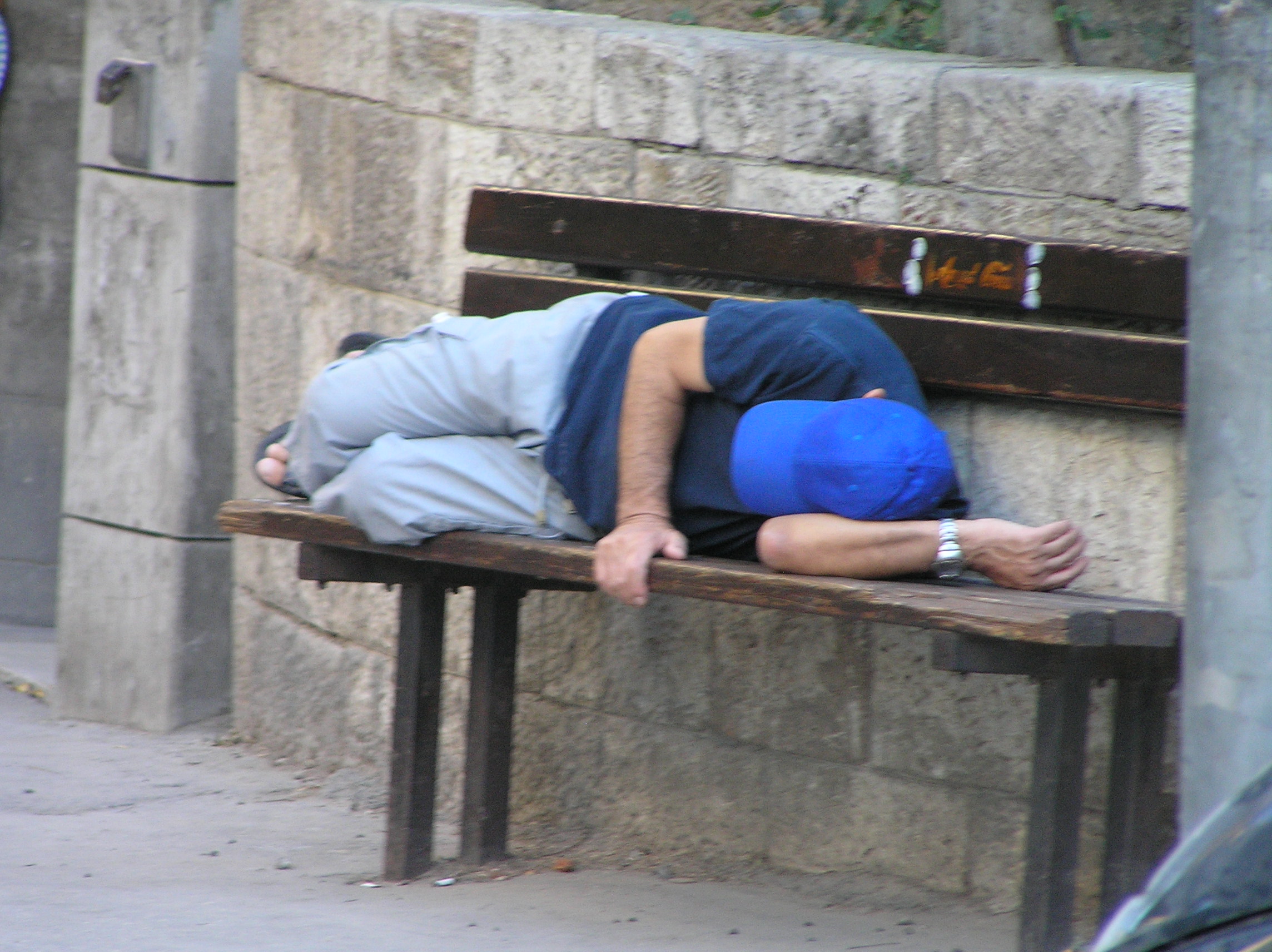זְהבה, תמר וְחנה מְדַבְּרות

100.00 %
נִדְמֶה לי שֶהוּא ישֵן, אבל אני לא בטוּחַ.
אוּלַי הוא עני—זאת אומֶרֶת אֵין לו כֶסֶף.
או אוּלַי הוא פשוּט עיֵיף מְאוד והוא רוצה לנוּחַ.
אִם אֵין לו הַרְבֵּה כֶסֶף, יִיתָכֵן שֶאֵין לו ביִת.
אבל מִצד שֵני הבְּגדים שֶלו נִרְאים בְסֵדֶר.
קשֶה לָדַעַת. הוא לא צריךְ שעון כי כְבר יֵש לו שעון.
אני חושֵב שֶזֶה לא חורֶף כי הוא נועֵל סנְדלים וְהוא לא לובֵש מְעיל.
לְפחות לא יורֵד גֶשֶם!
אני רואֶה שְתֵי סיגרְיות מִתחת לַספְסל
המידְרכה לא נְקייה, היא קְצת מְלוּכְלֶכֶת.
אה, שכחְתי לְהגיד מַשֶהוּ, הוא לא חובֵש כיפּה, הוא חובֵש כובע כחול.
מֵאחוֹרֵי הספְסל יש חומה נְמוּכה.
הספְסל חוּם. הוא ישן—זאת אומֶרֶת לא חדש.
| בֶן-אדם | man | חורֵף | winter | ||
| כאֲשר | as, while | נועֵל, נעל | wear a shoe | ||
| שוכֵב, שכב | lie | מְעיל | coat | ||
| ספְסל | bench | לְפחות | at least | ||
| נִדְמֶה לי שֶ- | it seems to me | יורֵד גֶשֶם | it's raining | ||
| ישֵן | asleep, sleeping | מידְרכה | sidewalk | ||
| בטוּחַ | certain | נקי | clean | ||
| עני | poor | מְלוּכְלךְ | dirty | ||
| עיֵיף | tired | חובֵש, חבש | wear a hat | ||
| לְנוּחַ, נח | rest | כובַע | hat | ||
| יִיתָכֵן | it's possible | מֵאחוֹרֵי | behind | ||
| מִצַד שֵני | on the other hand | חומה | wall | ||
| נִרְאים, נִרְאֶה | appear, look | ישן | old (of things) |
הֶעָרָה
FYI לידיעתך
Hebrew has surprisingly few "foreign" or words borrowed from other languages The Academy of the Hebrew Language has coined many thousands of words for use in Modern Hebrew. You can visit their website! HERE
A foreign word is called מילה לועֲזית